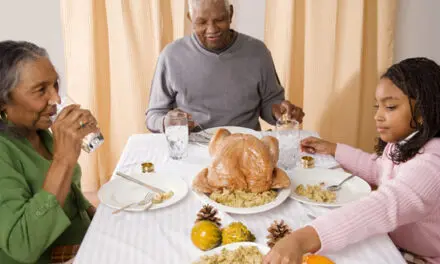Traditions are very meaningful to just about everyone during the Christmas season. They help us express our family’s uniqueness, they help everyone anticipate being together to celebrate, and they often create memories that last a lifetime.
Christmas traditions help to make this season bright, but sometimes other things get in the way. So here are some tips to keep in mind:

More than that, grandparents are the natural keepers of the family’s heritage. We know the history and tell the stories, complete with photo albums and mementos from years ago that we can pull out and show to everyone. Christmas traditions are part of that.
So, chances are, it will be our job to restore and continue family traditions—whether they are from our youth or brand new this year. We can’t force our children and grandchildren to embrace our traditions, but if we make them special and meaningful, chances are they will want to continue them. And those traditions we establish and maintain will likely be passed on to future generations as part of our legacy. For many people, those memories become much more valuable than any gifts under the tree.
Be family-focused. Emphasize traditions that foster togetherness and interaction. To be clear, this doesn’t mean watching TV programs together, an annual video game challenge, or having everyone go their separate ways with their devices. Some of that can be fine, but make sure the focus is on traditions that encourage family time.
That also means you’re engaged as a grandparent. Don’t treat family traditions like ‘check the box’ obligations, but really invest yourself in making them special for everyone. And if it seems overwhelming, remember that sometimes less can be more; you might decide to choose quality over quantity when it comes to traditions.
Celebrate uniqueness. Does your family have any unusual Christmas traditions? Probably fewer people these days are going out caroling, but that’s a great tradition for one family I know. Another has a cookie-baking marathon. Instead of turkey or ham, one family comes up with a shrimp dish to feature on Christmas Day. For another family, it’s Italian beef. Do you have a wacky gift exchange? Or maybe the everyone takes time to volunteer at a local charity close to the holidays.
If they’re unique, somehow that can make them more special. Participating in those traditions can be a proud reminder for each child and adult that they are part of a larger family, even if it might be quirky in some ways.
Be flexible. Too many grandparents lay on guilt trips if the rest of the family doesn’t fit into their holiday plans. Or, they make demands: “If you want to be part of this family, you get those kids here by Christmas Eve.” On the other side, some communicate apathy in an effort to avoid making demands: “Well, stop by when you can.”
A better option is to let everyone know their presence is important while acknowledging how difficult it is to sync schedules. “We’d like to have everyone together during Christmas break. We’ll cook the turkey, but let’s make sure and get together. What works for you?” Show the entire clan—including your grandchildren—that being together is important for your family, even if it’s in the middle of December or the first week of January.
Be positive. In today’s world, it’s normal to complain about having to go visit relatives for the holidays. People expect it to be boring, or stressful, or just awkward. As the family matriarch or patriarch, you can set the tone, so do all you can to make the time positive. That might mean changing your routine, giving up what you prefer so someone else can be happy, or being open-minded toward someone whose thinking you just don’t understand. If the family situation is complicated, or even if things work out so that you don’t get to see the grandkids at all, having a good attitude anyway will speak volumes to your grandkids.
What are your best tips during the holidays? Please send us your ideas and comments at our Facebook page.




